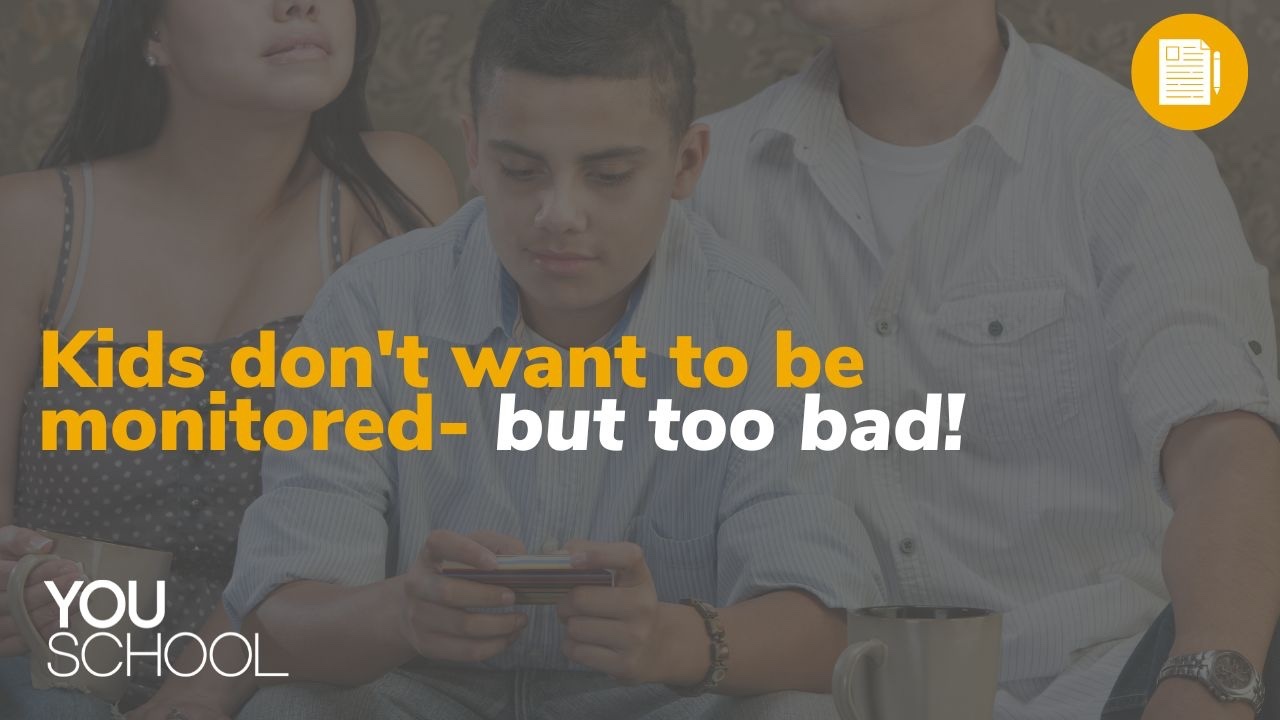Kids don't want to be monitored- but too bad

No parent on earth doesn’t worry about their kids’ well-being. Specifically, they worry that the boundaries and guardrails they put up and around their kids will be sufficient to keep them safe yet help them thrive.
In recent years, studies have been conducted to give parents clarity about what their kids need regarding monitoring their peer influences and behavior.
One study concluded that “Active parental monitoring and rule-setting are linked with less substance use and abuse among adolescents. Even when drug-using peers exert pressure on their friends to use drugs, perceived parental monitoring can dissuade youths from initiating drug use and influence the amount of substances used.” Another study revealed that for kids whose parents monitored their whereabouts less were more likely to engage in risky, excessive drinking.
Perhaps it goes without researching, kids who feel like their parents are involved in their welfare experience more support and protection against making harmful decisions. On the one hand, they might feel like the consequences they’ll face when they get caught outweigh the benefits of exploration. On the other hand, parent monitoring implies a level of caution and concern that communicates to a kid what is beneficial and what is harmful to them.
So go ahead and be watchful and engaged with your child and their friends. Ask about their plans, even when they roll their eyes. Require them to check in with you if they’re outside of your home. Be nosy and get to know their friends’ parents. But make sure you communicate clearly with them your motivations: to keep them safe and support them in making the best decisions possible so they can thrive throughout a long life.
P.S. What if there was a way to get the best resources to impact the kids in your life—delivered to you at the right time?
Check out our memberships for parents and educators.

